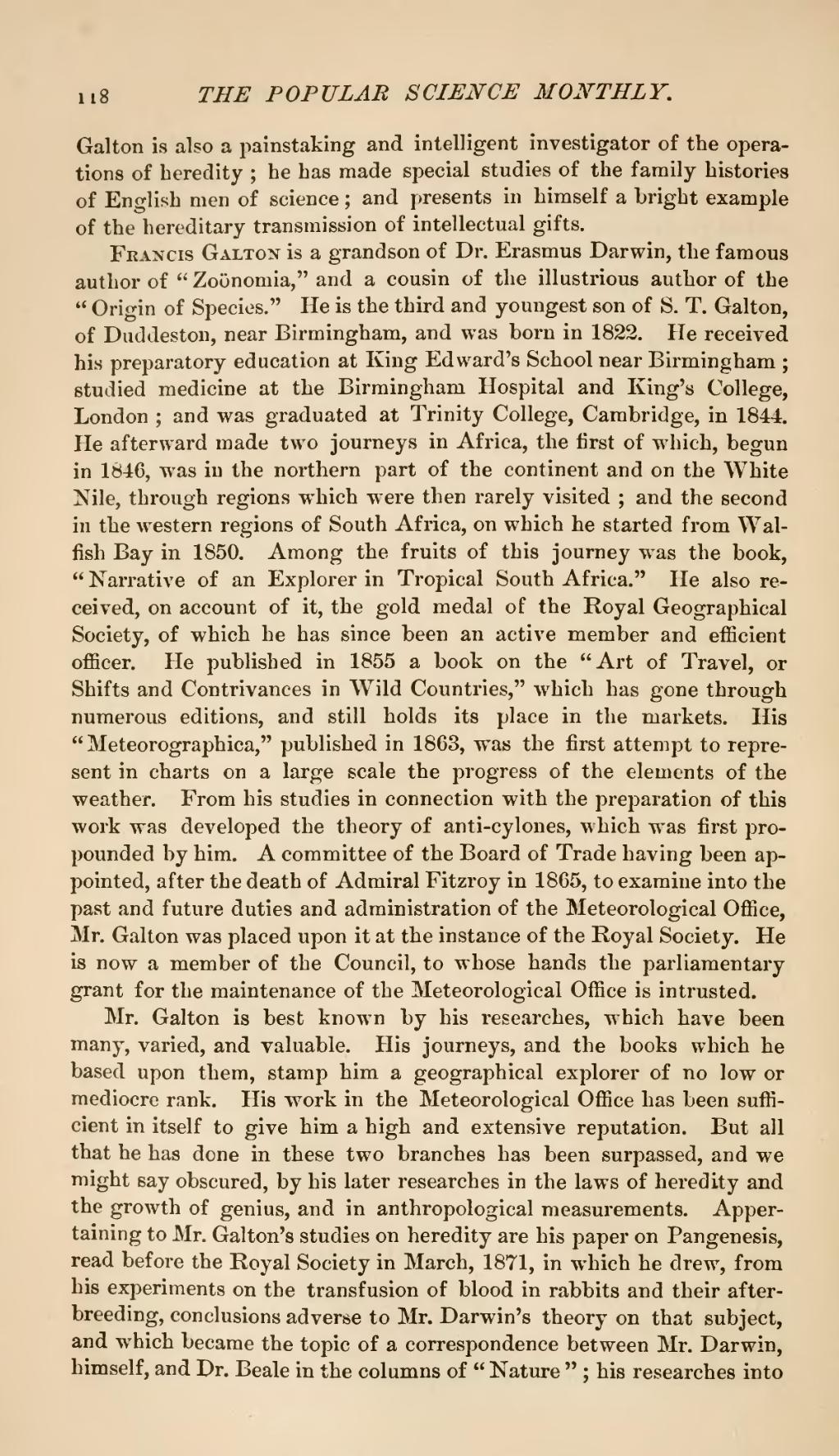Galton is also a painstaking and intelligent investigator of the operations of heredity; he has made special studies of the family histories of English men of science; and presents in himself a bright example of the hereditary transmission of intellectual gifts.
Francis Galton is a grandson of Dr. Erasmus Darwin, the famous author of "Zoönomia," and a cousin of the illustrious author of the "Origin of Species." He is the third and youngest son of S. T. Galton, of Duddeston, near Birmingham, and was born in 1822. He received his preparatory education at King Edward's School near Birmingham; studied medicine at the Birmingham Hospital and King's College, London; and was graduated at Trinity College, Cambridge, in 1844. He afterward made two journeys in Africa, the first of which, begun in 1846, was in the northern part of the continent and on the White Nile, through regions which were then rarely visited; and the second in the western regions of South Africa, on which he started from Walfish Bay in 1850. Among the fruits of this journey was the book, "Narrative of an Explorer in Tropical South Africa." He also received, on account of it, the gold medal of the Royal Geographical Society, of which he has since been an active member and efficient officer. He published in 1855 a book on the "Art of Travel, or Shifts and Contrivances in Wild Countries," which has gone through numerous editions, and still holds its place in the markets. His "Meteorographica," published in 1863, was the first attempt to represent in charts on a large scale the progress of the elements of the weather. From his studies in connection with the preparation of this work was developed the theory of anti-cylones, which was first propounded by him. A committee of the Board of Trade having been appointed, after the death of Admiral Fitzroy in 1865, to examine into the past and future duties and administration of the Meteorological Office, Mr. Galton was placed upon it at the instance of the Royal Society. He is now a member of the Council, to whose hands the parliamentary grant for the maintenance of the Meteorological Office is intrusted.
Mr. Galton is best known by his researches, which have been many, varied, and valuable. His journeys, and the books which he based upon them, stamp him a geographical explorer of no low or mediocre rank. His work in the Meteorological Office has been sufficient in itself to give him a high and extensive reputation. But all that he has done in these two branches has been surpassed, and we might say obscured, by his later researches in the laws of heredity and the growth of genius, and in anthropological measurements. Appertaining to Mr. Galton's studies on heredity are his paper on Pangenesis, read before the Royal Society in March, 1871, in which he drew, from his experiments on the transfusion of blood in rabbits and their after-breeding, conclusions adverse to Mr. Darwin's theory on that subject, and which became the topic of a correspondence between Mr. Darwin, himself, and Dr. Beale in the columns of "Nature"; his researches into

